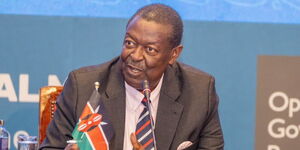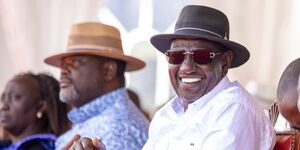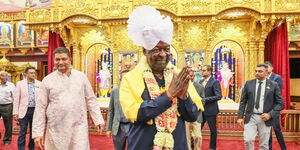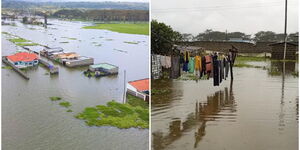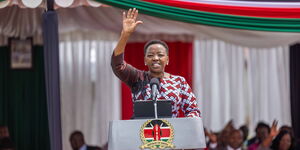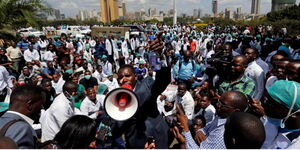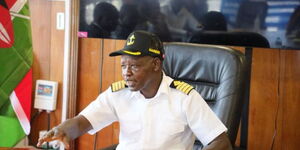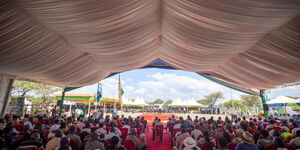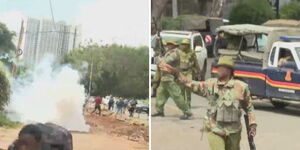Former Independent Electoral and Boundaries Commission (IEBC) Chairman Wafula Chebukati on Wednesday, May 3, announced that his maiden election project had received global acceptance at the ElectIntegrity's Annual Conference.
Chebukati expressed gratitude to the Royal Military College of Canada for accepting his project which he believed would enlighten the world on various challenges facing electoral bodies across the world.
The former IEBC Chairman intends to use the conference to scientifically explain how Kenyan elections were managed, especially, the issue of results transmission.
"I am pleased to announce that my project titled "Role of Technology in Improving the Integrity of the electoral process in Kenya" has been accepted for presentation at ElectIntegrity's Annual Conference to be held on July 3-7, 2023," Chebukati announced.
He stated that he would extensively touch some of the ongoing debates and post-election demands by Azimio la Umoja Leader Raila Odinga.
"My talk will demystify the server in Kenyan polls," Chebukati assured Kenyans as he called on the people to closely follow his presentations at the Royal Military College of Canada in July 2023.
The Electoral Integrity Project (EIP) seeks to strengthen elections in contests around the world through innovative and policy-relevant scientific research that achieves international standing in the social sciences.
Since its inception in 2012, EIP has been used to measure and compare the quality of elections around the world, and the projects have produced numerous reports, datasets, and policy recommendations on electoral integrity.
The EIP's work is based on a comprehensive research framework that covers a range of factors that can affect the integrity of an election, such as electoral laws, voter registration, campaign finance, media coverage, and election administration.
The project measures these factors using both quantitative and qualitative research methods and produces a range of indicators and indices to assess the quality of elections in different countries.
EIP's work has been widely cited and has informed policy debates and reforms in many countries. The project also collaborates with a range of international organizations, civil society groups, and governments to promote electoral integrity and democratic practices around the world.
Electoral Integrity Project typically hosts an Electoral Integrity Symposium every year, bringing together experts and scholars in the field of electoral integrity to share research, best practices, and policy recommendations.
Raila's Azimio contested the outcome of the 2022 presidential election, calling for an audit of the server to end the ongoing political stalemate.

